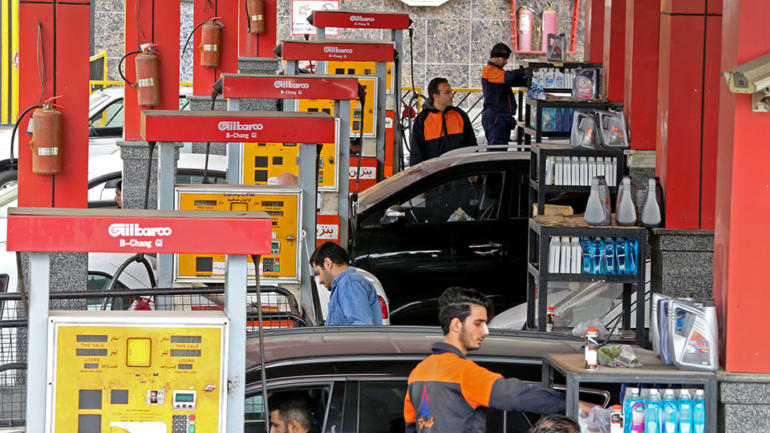The U.S. has launched harsh new sanctions against Iran, as Washington hopes to pressure Tehran into a new, tougher deal to replace the Iran nuclear deal, formally known as the Joint Comprehensive Plan of Action, that was put into place during the Obama administration. Trump pulled out of the deal earlier this year.
CGTN’s Jim Spellman reports.
The U.S. wants a new deal that addresses not only nuclear weapons, but also limits Iran’s ballistic missile program and reduces its influence in the region. The new sanctions target numerous sectors including finance and shipping and most importantly Iran’s oil industry.
“The Iranian regime has a choice. It can either do a 180-degree turn from its course of action and act like a normal country, or it can see its economy crumble,” U.S. Secretary of State Mike Pompeo told reports Monday.
The Trump administration has granted temporary exemptions to eight economies: China, India, Italy, Greece, South Korea, The Taiwan region, Turkey and Japan, in an effort to reduce the global economic impact.
“China expresses regret at the U.S. decision. We also noted that the international community is widely against unilateral sanctions and long arm tactics. The comprehensive agreement on the Iranian nuclear issue is a multilateral agreement approved by the U.N. Security Council and should be fully and effectively implemented,” Hua Chunyung, Chinese Foreign Ministry Spokesperson said.
Iran’s President, Hassan Rhouhani, said the new sanctions are illegal and will only further isolate the U.S. on the world stage.
“I don’t think in the history of America there has been people in the White House this against the law and international treaties,” Rhouhani said.
The current sanctions have already taken a toll on the Iranian people. The country’s currency has lost more than half its value since April, and consumer prices have shot up for many items.
“I don’t know how long this is going to last, how long we can resist and whether our government will be able to find solutions for the sanctions and save us? Right now, we are in a whirlpool, and I hope we won’t get drowned,” said Freshteh Safarnejad, a school teacher in Tehran.
Barbara Salvin for more on the US decision to reimpose sanctions on Iran
The Trump Administration has taken aim at the core of Iran’s economy – it has reimposed sanctions six-months after unilaterally withdrawing from the 2015 nuclear agreement. CGTN’s Asieh Namdar speaks with Barbara Salvin for more on the United States decision. Salvin is the Director of the “Future of Iran Initiative” at the Atlantic Council – a Washington DC-based think tank.
 CGTN America
CGTN America
 Iranians drivers fill their tanks at a gas station in the capital Tehran on November 5, 2018. – Iran’s President Hassan Rouhani said the Islamic republic “will proudly bypass sanctions” by the United States that took effect on Monday targeting the country’s oil and financial sectors. (Photo by ATTA KENARE / AFP)
Iranians drivers fill their tanks at a gas station in the capital Tehran on November 5, 2018. – Iran’s President Hassan Rouhani said the Islamic republic “will proudly bypass sanctions” by the United States that took effect on Monday targeting the country’s oil and financial sectors. (Photo by ATTA KENARE / AFP)
